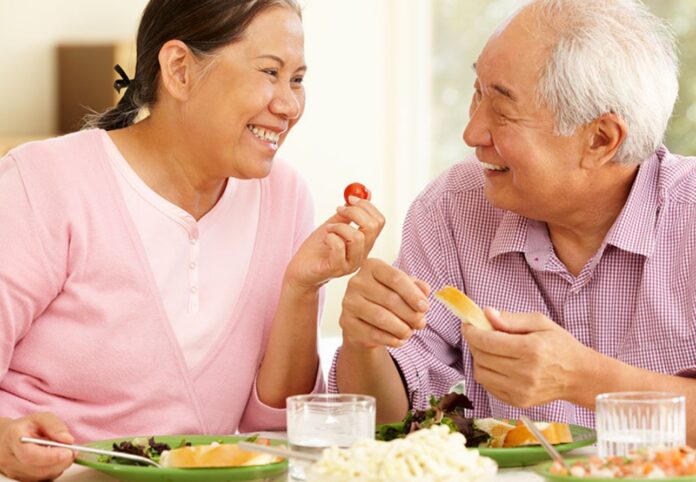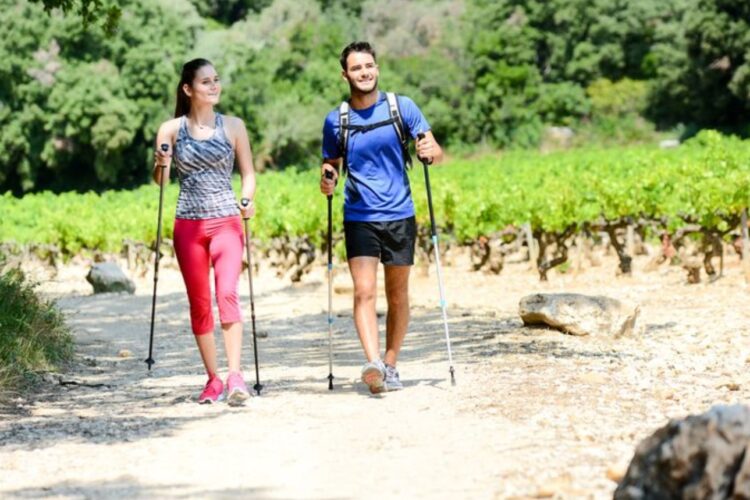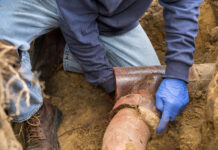
Growing old healthy is important and some simple changes can make all the difference. Here are some tips to help.
1. Fight Afternoon Fatigue
Fatigue is not uncommon in life, but it can be a thorny issue for the elderly, especially after lunch. Eating high-antioxidant foods like prunes and taking a glass of water after the meal can stimulate the mind and revitalize the body. It is also advisable to go for a walk after a meal. Strenuous physical activity is bad for you after a meal, but a light walk will help you fight fatigue and you will feel fresh for the rest of the day. If you can, choose to walk the streets that are full of trees, without traffic, to breathe clean air.

2. Break Routine
Sticking to a routine inhibits stimulation of the mind. Introducing new foods or fun ways of eating the same dish can help the older adults look forward to mealtimes. For instance, you can switch to freshly sliced peaches instead of the canned ones. Try doing things differently, like taking a different route when going grocery shopping. Scientists claim that the neurons in your brain become “stiff” if you constantly stick to your routines day after day and never change anything. Start watching a new TV series, find a hobby or something similar which will bring a breath of fresh air into your life. If you live the same, every day for years, that’s very bad. Everything should be done to avoid monotony, which leads to depression.
3. Pole Walk
The poles can aid with balanced mobility better than canes or walkers. Walking with poles demands the use of the upper torso muscles, increasing upper-body strength and building cardiovascular endurance. However, it is wise to consult with an experienced physician before switching from canes to walking poles. In old age, the most important thing is to avoid any injuries, because the recovery process is much longer and more difficult than in young people. It is also uncertain whether it is even possible to recover so that things are the same as before the injury. Some injuries, such as hip fractures can even be fatal for older people in the long run. You also have to be careful what medications you use, because certain medications can lead to dizziness and similar symptoms.

4. Stick To The Good Fats
Adults who are prone to dementia can lower the risk of this complication by increasing their Omega-3 fatty acids intake. They can get a healthy supply of these essential fatty acids in foods like olive oil, seafood, eggs, nuts, and leafy green veggies. The fatty acids are known to help reduce brain inflammation, which is a potential cause of Alzheimer’s. For decades, fat was something they absolutely advised us to avoid, which was obviously a big mistake. Today, it has been proven in many respectable studies that they should be consumed daily. Also all bad fats should be completely eliminated, especially in old age. The reason is that it will affect the clogging of the arteries, and due to very limited physical activity you will not have a way to burn excess fat.
5. Dine With Company
Having company during meals or sharing food with others can be useful in regulating a person’s intake. People that share meals tend to eat less than those that prefer eating alone. Therefore, sharing meals is a practical weight-loss tactic that also promotes social interaction. It might be easy for the aging in the community homes, while those at home with family can plan for several meal dates with their family and friends weekly. It is important to avoid overeating also because the digestive tract works more slowly as the years go by. So if you overeat you can have serious problems, such as severe pain, diarrhea, constipation and more. It can happen to a young man too, but it will overcome this problem much faster because the digestive tract works faster. Consume fiber, healthy, easily digestible foods, as well as probiotics.

6. More Of Salsa And Less Of Salt
High blood pressure increases the risk of stroke and a declining cognitive function in people as they age. Moreover, the sense of taste starts fading as adults get older leading to a longing for more salt in their foods to enhance the flavor. Lowering salt intake and embracing fun habits like dancing to salsa music can promote cognitive health and improved cardio.
7. Exercise From The Neck Up
When it comes to fitness for older adults, the focus should be on the mind and body. The brain should stay active, limiting memory loss complications like dementia and Alzheimer’s while fostering executive function. The aging should engage in recall exercises or word games. For instance, they can try to find five red objects on their routine evening stroll around the block and recall them when they get home. Nor does it mean that physical exercise, of course adapted to age, should be neglected. Don’t try to do something you could when you were young, because it’s a sure path to injury or heart problems. There are fitness trainers who specialize in working with the elderly population and they will give you a customized training plan for your age.

8. Sole Support
The fat pad on the bottom of the feed tends to compress as people grow old. It causes them to feel fatigued and experience some pain and discomfort. The aging will benefit from inserting footpads in their shoes or wearing a supportive pair. Socks with extra padding can also work, and a wicking agent will help keep the feet dry.
9. Balancing Act
Lastly, aside from exercising regularly to build strength and enhance mobility and bolster cardiovascular endurance, finding the balance between these activities is very beneficial. It requires maintaining the right posture with the center of gravity over the support base. Yoga, water exercises, tai-chi, and walking on challenging surfaces are workouts that can help achieve and maintain overall balance.

Taking care of yourself is important, as is making sure you have healthcare, take a look at Medicaresupplementplans2021.com and find the right plan for you.











